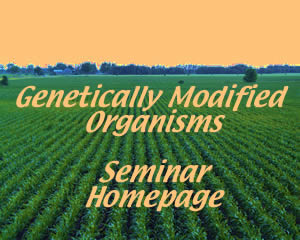






Costs and Benefits: Genetically Modified vs. Traditionally Bred Crops
Currently, there is little data which shows the impact of specific GM traits on the environment. While some argue that GMOs will lead to a decrease in pollution, there are concerns that these crops could cause problems. (Daniell 2002)
Crop Improvement: Pest Resistance
Some GM crops have the upper hand with pests, like insects and weeds. These improvements allow for increased yields. Bt corn incorporates genetic material from Bacillus thuringiensis, a common soil bacterium, in order to prevent crop damage from certain pests, like pink bollworm (Pectinophora gossypiella). The crop produces its own pesticide so additional chemical treatment would be unnecessary. Roundup-ready crops are herbicide resistant. Its producer, Monsanto, claimed it would help improve the environment by decreasing the amount of herbicides necessary.
There are several concerns about these crops. Could the products of genes incorporated into crops harm non-target species? According to one study, the pollen from these Bt corn could harm the monarch butterfly population. But another study, considering seed-eating birds, concluded that roundup-ready plants caused lower risks than pesticide treatment. Could these chemicals impact the quality of the soil, water, or air? Could they pose health hazards to humans? (Hails 2000)
Gene Flow
The European Environment Agency defines gene flow as the "exchange of genetic traits between populations by movement of individuals, gametes or spores." Gene flow is an evolutionary process which harbors genetic variation within a species. But what could happen if two species, like a crop and a weed, are closely related?
There is concern that lateral gene transfer, genes jumping from one species to another, could cause the development of "super weeds." Because the genes enhanced or incorporated into GMOs increase their fitness in their environment, the transfer of these genes to other species could render weeds that we could not control. For example, if an herbicide resistance gene transferred to a weed causing resistance to the chemical used to control its growth, there may be no way to prevent the spread of these weeds.

